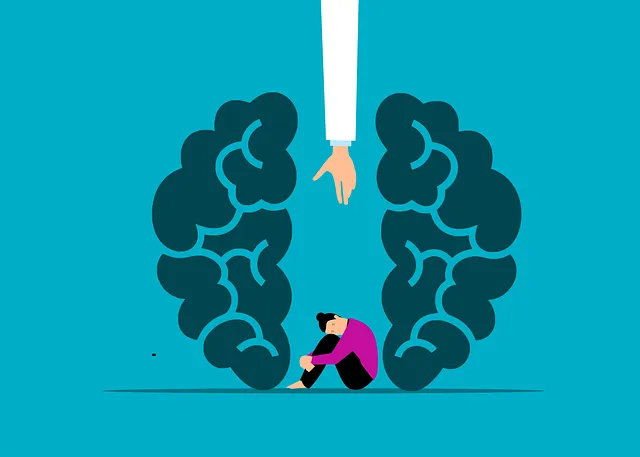The Longmont Kaiser Permanente mental health center prioritizes patient safety through comprehensive risk assessment, leading to tailored harm minimization strategies. Its proactive approach, evident in positive reviews, focuses on emotional regulation, resilience building, and staff well-being through self-care initiatives. The center's unique therapeutic methods cater to diverse needs, making it a renowned benchmark for mental health care, as highlighted by favorable Longmont Kaiser Permanente mental health center reviews.
“Risk assessment and harm minimization planning are cornerstone strategies in creating safe, supportive environments, especially within healthcare settings. This article explores these concepts through a comprehensive lens, beginning with understanding risk assessment as a foundational tool for ensuring client safety. We delve into harm minimization strategies, offering insights from the Longmont Kaiser Permanente Mental Health Center reviews, and conclude with best practices for healthcare providers to implement effective risk management plans.”
- Understanding Risk Assessment: A Foundation for Safe Environments
- Harm Minimization Strategies: Protecting Client Well-being
- Longmont Kaiser Permanente Mental Health Center Reviews: Insights and Implications
- Implementing Effective Risk Management Plans: Best Practices for Healthcare Providers
Understanding Risk Assessment: A Foundation for Safe Environments

Risk assessment forms the cornerstone of creating safe environments, especially within healthcare facilities like the Longmont Kaiser Permanente mental health center. It involves a systematic analysis of potential hazards and their likelihood of causing harm to individuals. By understanding and identifying risks, centers can implement effective strategies for harm minimization, ensuring a supportive and therapeutic atmosphere. This process is crucial in managing various aspects, from physical safety to emotional well-being, particularly for vulnerable populations seeking mental health services.
At the Longmont Kaiser Permanente, risk assessment plays a pivotal role in shaping patient care. By adopting a proactive approach, the center can offer personalized guidance, such as positive thinking exercises and mood management techniques (as discussed in various Mental Wellness Journaling Exercise Guidance), to empower individuals in their recovery journey. This holistic strategy, grounded in thorough risk assessment, not only enhances patient satisfaction but also contributes to positive outcomes, making it an essential practice for any mental health facility.
Harm Minimization Strategies: Protecting Client Well-being

Harm Minimization Strategies play a pivotal role in protecting client well-being at mental health centers like Longmont Kaiser Permanente. These strategies are designed to anticipate and mitigate potential risks, ensuring that individuals seeking support for their mental health receive care that prioritizes safety and security. For instance, implementing robust risk assessment protocols allows mental health professionals to identify vulnerable clients and develop tailored interventions.
At Longmont Kaiser Permanente, Trauma Support Services are a key component of harm minimization efforts. By integrating these services, the center acknowledges the profound impact of traumatic experiences on mental well-being. Additionally, fostering a culture of self-care among both clients and staff is essential for maintaining a healthy environment. Encouraging individuals to develop robust Self-Care Routine Development practices can prevent burnout and promote resilience, ultimately enhancing the quality of care provided at the Longmont Kaiser Permanente mental health center, as reflected in reviews from satisfied clients.
Longmont Kaiser Permanente Mental Health Center Reviews: Insights and Implications

The Longmont Kaiser Permanente Mental Health Center has garnered significant attention through patient reviews, offering valuable insights into its services and potential implications for mental health care. These reviews highlight the center’s commitment to providing a supportive environment, with many clients praising the professional and compassionate staff. The focus on emotional regulation and mind over matter principles is evident in treatment approaches, fostering a sense of safety and encouraging clients to develop resilience building skills.
Positive feedback emphasizes the center’s ability to cater to diverse needs, implementing innovative strategies to address common mental health challenges. By incorporating various therapeutic methods, Longmont Kaiser Permanente aims to enhance patient experiences and outcomes. These reviews serve as a reminder that thorough risk assessment and harm minimization planning are essential components of effective mental health care, setting benchmarks for centers worldwide.
Implementing Effective Risk Management Plans: Best Practices for Healthcare Providers

Implementing effective risk management plans is paramount for healthcare providers, especially at facilities like Longmont Kaiser Permanente mental health centers, where patient well-being and safety are paramount. A comprehensive approach involves identifying potential risks specific to mental health services—including client self-harm, interpersonal violence, or staff burnout—and developing tailored strategies to mitigate these dangers.
Best practices for risk management emphasize proactive measures. This includes regular staff training on crisis intervention techniques, establishing clear communication protocols, and fostering a supportive environment that encourages clients to openly discuss their struggles. By integrating mental health awareness, promoting stress reduction methods, and nurturing inner strength development, healthcare providers can create a safe space that empowers individuals on their journey toward recovery.
Risk assessment and harm minimization planning are essential components of creating safe environments, as demonstrated by the insights gained from the Longmont Kaiser Permanente mental health center reviews. By understanding risk assessment and implementing effective strategies, healthcare providers can better protect client well-being. These best practices ensure that mental health centers operate with a proactive approach, minimizing potential risks and delivering high-quality care. The review of Longmont Kaiser Permanente serves as a testament to the importance of continuous improvement in risk management plans.




